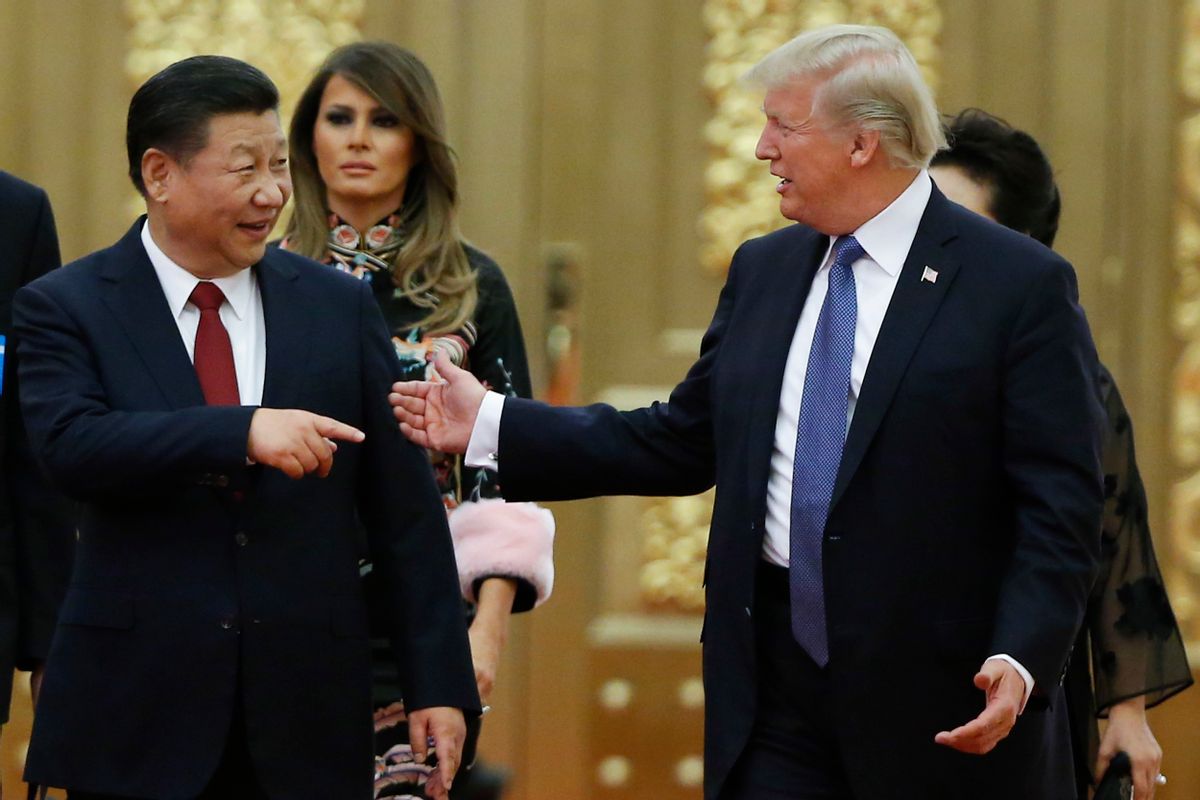When China Energy’s unprecedented $84 billion investment in West Virginia was announced late last year, many people – including me — said it could be a game-changer for the state, a much-needed priming of the pump that would not only add jobs but that might lure additional investment.
But now, the ongoing and apparently escalating trade dispute between the U.S. and China may put the entire deal in jeopardy.
Brian Anderson, director of the WVU Energy Institute, told West Virginia MetroNews that executives from China Energy, who were planning on attending a petrochemical conference in the U.S. — and, it was hoped, announce the deal’s first project — have canceled their trip, owing to the tensions between Washington and Beijing.
“These issues surrounding the pending trade war are causing some concern among the leaders of China Energy,” Anderson said.
China Energy, a state-owned company that is the result of a merger between China’s biggest coal producer and one of its biggest utilities, pledged to invest in shale gas development and chemical manufacturing projects in West Virginia, bolstering two of the state’s biggest employers.
But that was before the White House said this week it would impose tariffs on $200 billion worth of Chinese goods, following the administration’s announcement last week it would put a 25 percent tariff on $50 billion in Chinese imports to the U.S.
The U.S. has long complained of unfair Chinese trade practices and theft of U.S. intellectual property. President Obama put a 35 percent tariff on Chinese tires in 2009. He threatened sanctions on China if it didn’t stop stealing intellectual property, and there are signs China was beginning to comply.
In retaliation to the U.S. tariffs, China announced a 25 percent tariff on imports of U.S. oil, gas and coal, following earlier tariffs on U.S. cars, farm products and other imports.
Experts worry these are just the first salvos of a trade war between the world’s two biggest economies.
And the China Energy investment into West Virginia may turn out to be collateral damage in a global trade battle.
The deal, which was launched with such promise and fanfare, has become shrouded in a cloud of opacity.
West Virginia state government officials have refused to make public the memorandum of understanding with China Energy. Further, they have not spelled out details of the deal, saying its duration — 20 years — means it may change over time.
Further muddying the picture was the ouster last week of West Virginia Commerce Secretary Woody Thrasher, who signed the memorandum with Chinese Energy officials in China last year.
Additionally, WV Gov. Jim Justice (R) revealed last week that a member of the state’s negotiating team on the China Energy deal must repay $23,000 in travel expenses because he was promoting his own company at the same time, creating a conflict of interest.
Anderson said that, despite the cancellation of the trip, China Energy is continuing with its due diligence and he is hopeful the project will go forward.
“In the middle of the back and forth with tariffs and trade issues with the U.S. and China, the China Energy folks said, ‘Well, this is certainly not the time for high-level executives and the CEO to pay an official visit to the U.S. and West Virginia — we really need to see the trade issues resolved,’” Anderson told the Charleston Gazette-Mail.
The big unknown is when, or if, the trade issues between Washington and Beijing will be resolved. Despite what has been described as a good relationship between President Trump and Chinese President Xi Jinping, hardliners in the Trump administration are determined to rectify what they see as an unfair U.S. trade imbalance with China.
If that is the case, the two great powers may be settling in for a long and bloody trade war. And that could spell trouble for the high hopes of the China Energy deal.
Frank Ahrens, a West Virginia native and WVU graduate, is a public relations executive in Washington D.C. He was a Washington Post journalist for 18 years and is the author of “Seoul Man: A Memoir of Cars, Culture, Crisis, and Unexpected Hilarity Inside a Korean Corporate Titan.” Contact him at www.frankahrens.com.



Shares